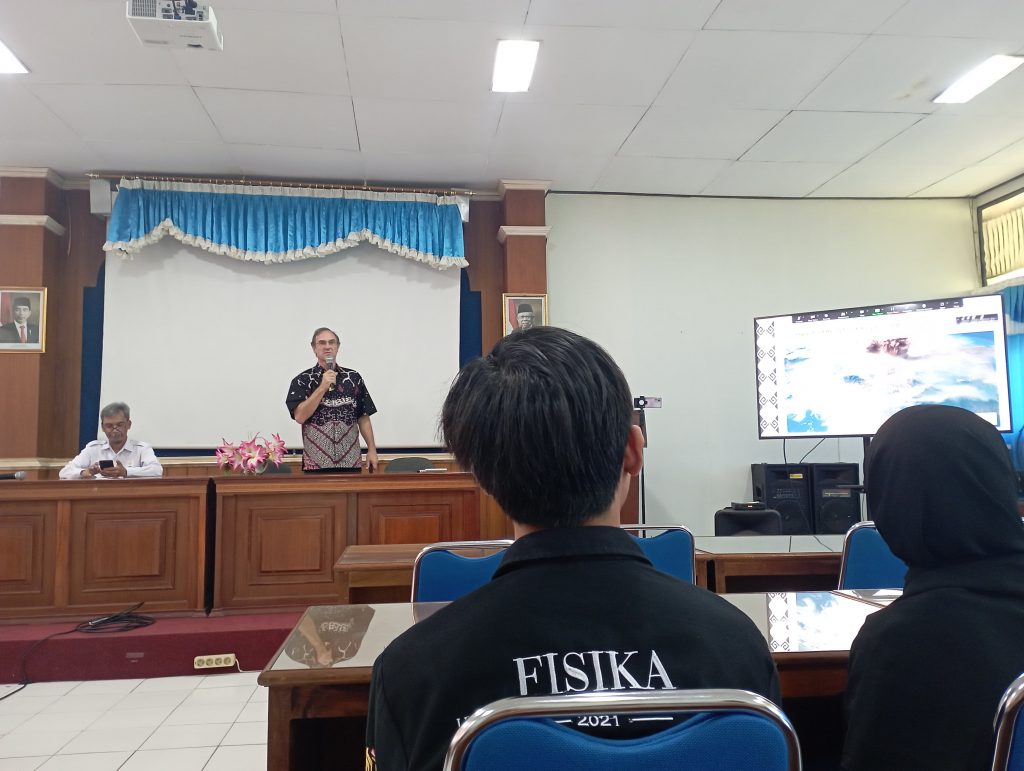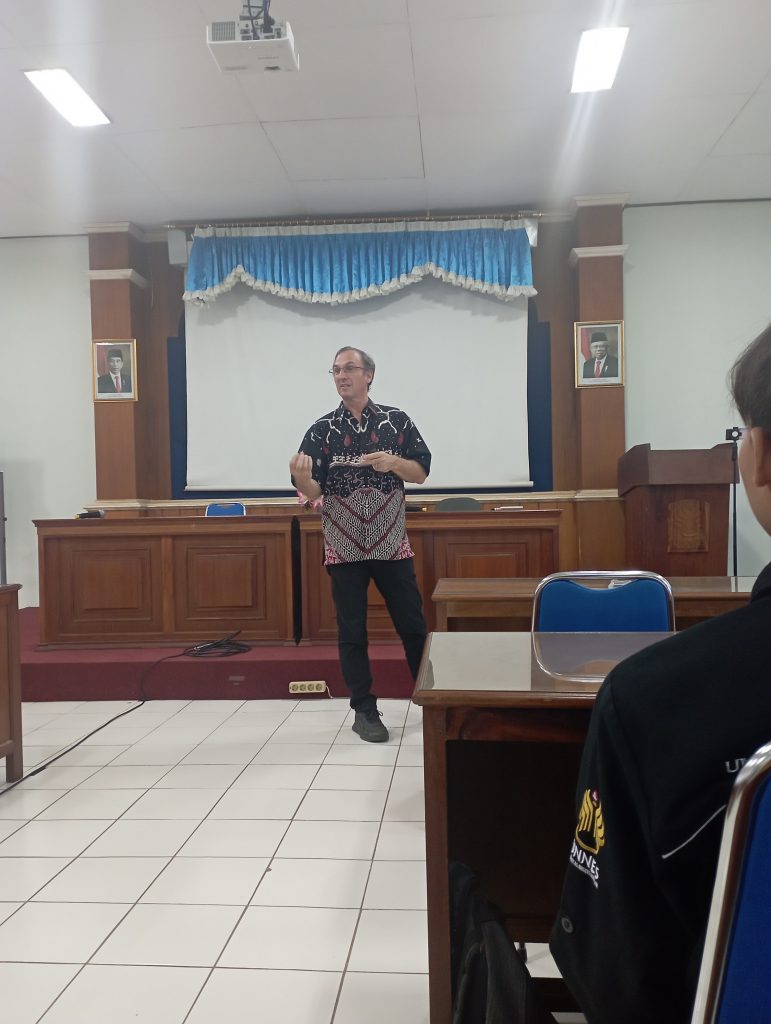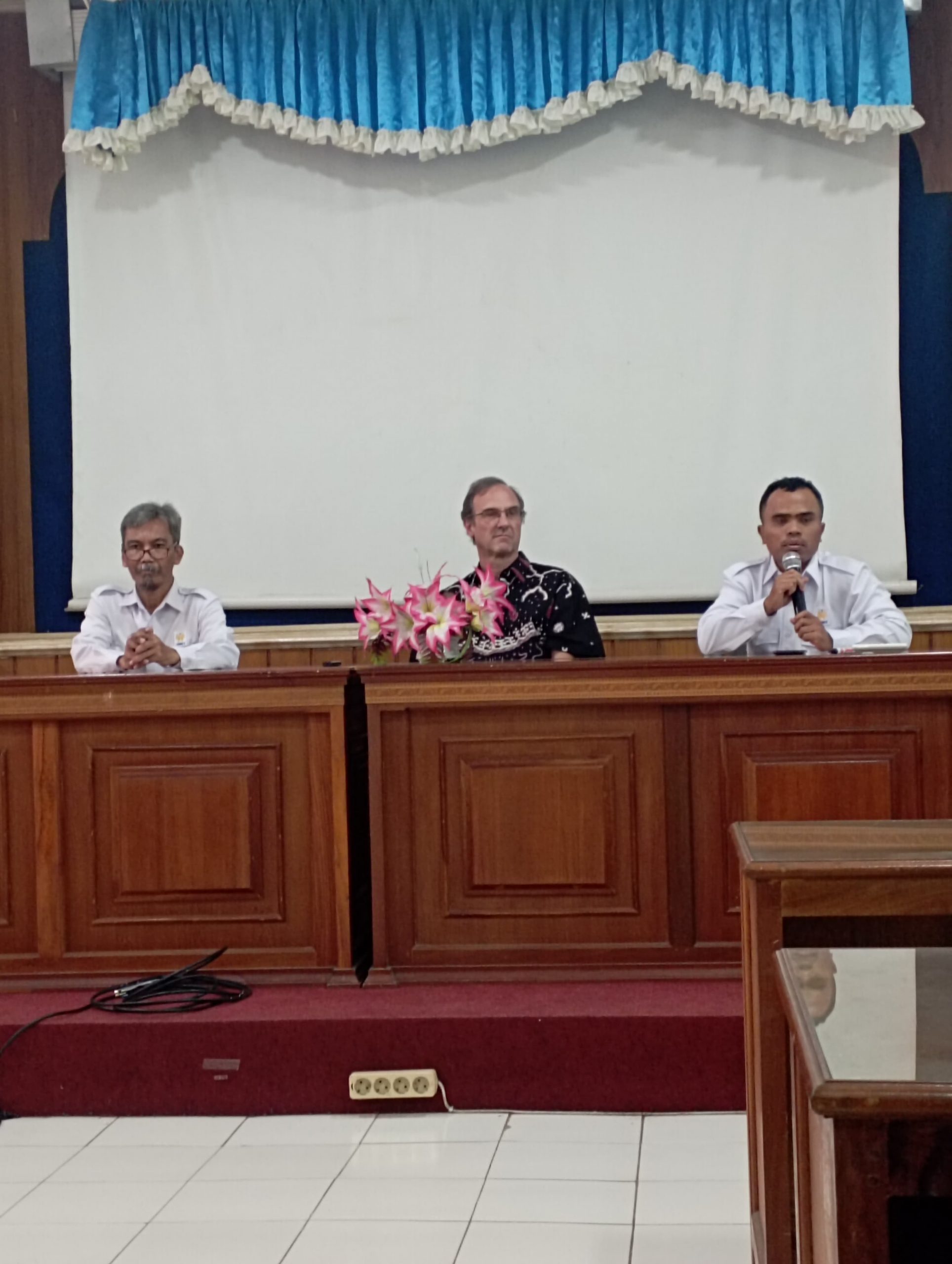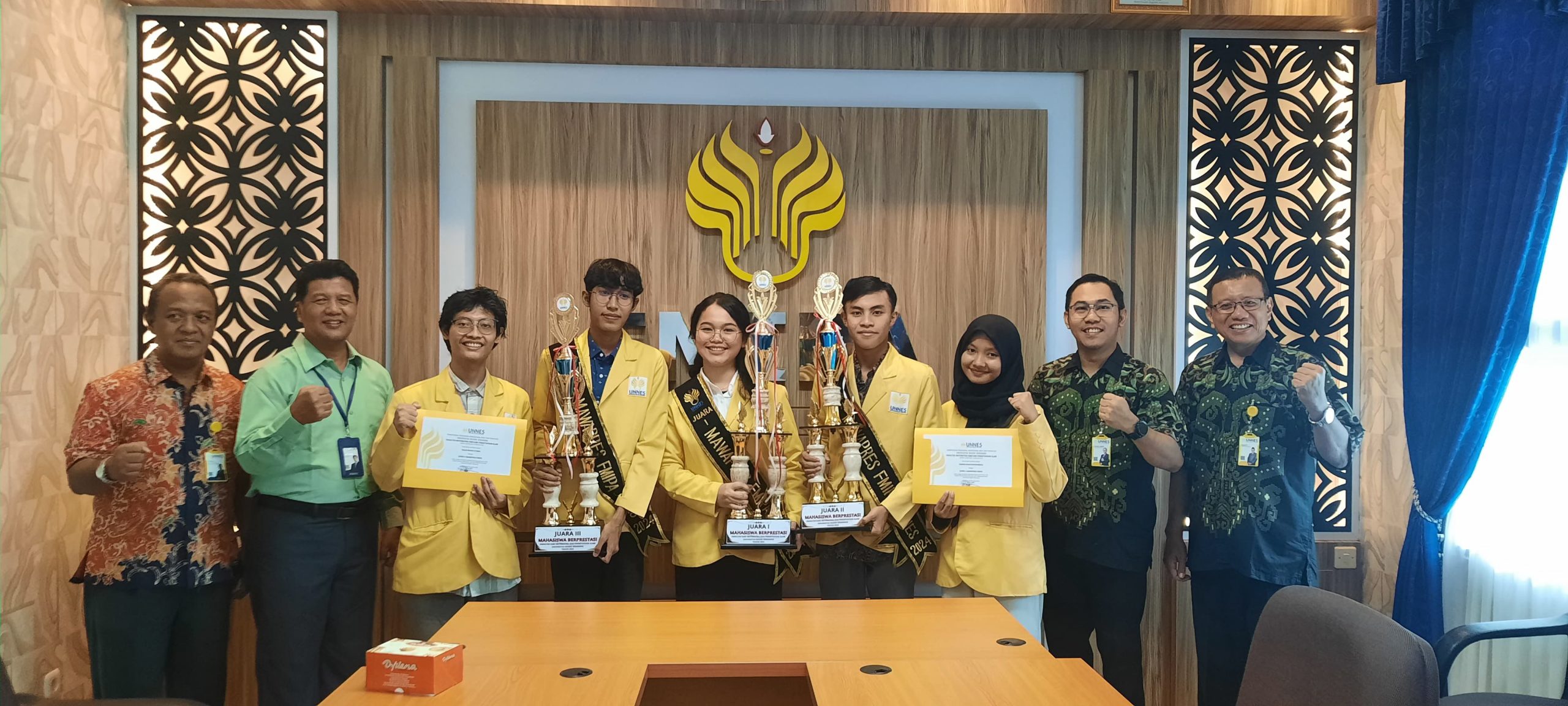In an effort to create a more quality and internationally renowned academic atmosphere, on Monday (12/11/2023), the Physics Department at FMIPA UNNES organized the 5th UNNES Physics Talk, presented as an international expert lecture. The lecture, held in the Meeting Hall of the Department, Building D7, 3rd Floor, featured Prof. Dr. Franck Lavigne, a researcher from the University Paris 1 Pantheon-Sorbonne, France, addressing the theme “Geomorphological and Social Impact of the 1257 CE Eruption of Mount Salamas in Lombok.” Moderated by Dr. M. Aryono Adhi, M.Si., a geophysics lecturer at the Physics Department, FMIPA UNNES, the event discussed the geomorphological and social impacts of the volcanic eruption of Mount Salamas in 1257 AD in Lombok, West Nusa Tenggara (NTB). The activity was attended by experts and professionals in the fields of geology, geophysics, and physics at the Physics Department, FMIPA UNNES, as well as students interested in studying volcanic eruption phenomena from various programs.

The Coordinator of the Physics Program at FMIPA UNNES, Prof. Dr. Masturi, M.Si., emphasized the importance of scientific activities reflecting the academic atmosphere in the Physics Department through events such as seminars, public lectures, and expert lectures. He expressed that bringing in world-renowned experts, such as Prof. Franck Lavigne from the University Paris 1 Pantheon-Sorbonne, France, ranked 35th globally by subject, is expected to provide variety and elevate the research level of the academic community at the Physics Department, UNNES. Moreover, according to Prof. Masturi, the presence of experts from various institutions, both domestic and international, is anticipated to enhance the quality of the tridharma activities (education, research, and community service) in the Physics Department and further raise UNNES’s reputation throughout Indonesia and the world.

During his presentation, Prof. Franck Lavigne described the historical context and characteristics of the eruption in 1257 AD that occurred on Mount Salamas in NTB. The French professor, who has been conducting volcano and disaster research in Indonesia for almost 30 years, explained that based on the sulfate content found, there was a tremendously powerful eruption around 1257 AD believed to be from Mount Salamas. He also provided information about geomorphological changes in the vicinity of Mount Salamas and the social impacts resulting from the eruption.

In addition to discussing the direct impacts of volcanic eruptions, the conversation extended to various aspects related to the geological structure influencing volcanic eruptions. Prof. Dr. Franck Lavigne discussed how knowledge about the Earth’s structure can provide a better understanding of the potential for volcanic eruptions and their impact on the environment and surrounding communities. Discussions with participants included explanations of moving tectonic plates, changes in the Earth’s crust, and magma activity beneath the Earth’s surface, which are crucial factors in understanding the mechanisms of volcanic eruptions. Furthermore, the discussion included the social impacts of this knowledge about the Earth’s structure, such as land ownership, settlement patterns, and evacuation in emergency situations.
Through a deep understanding of the Earth’s structure during volcanic eruptions, participants are expected to gain a more comprehensive understanding of how the interaction between geological components and human social life affects the impact of volcanic eruptions and its relevance to disaster mitigation and sustainability planning in the future.





